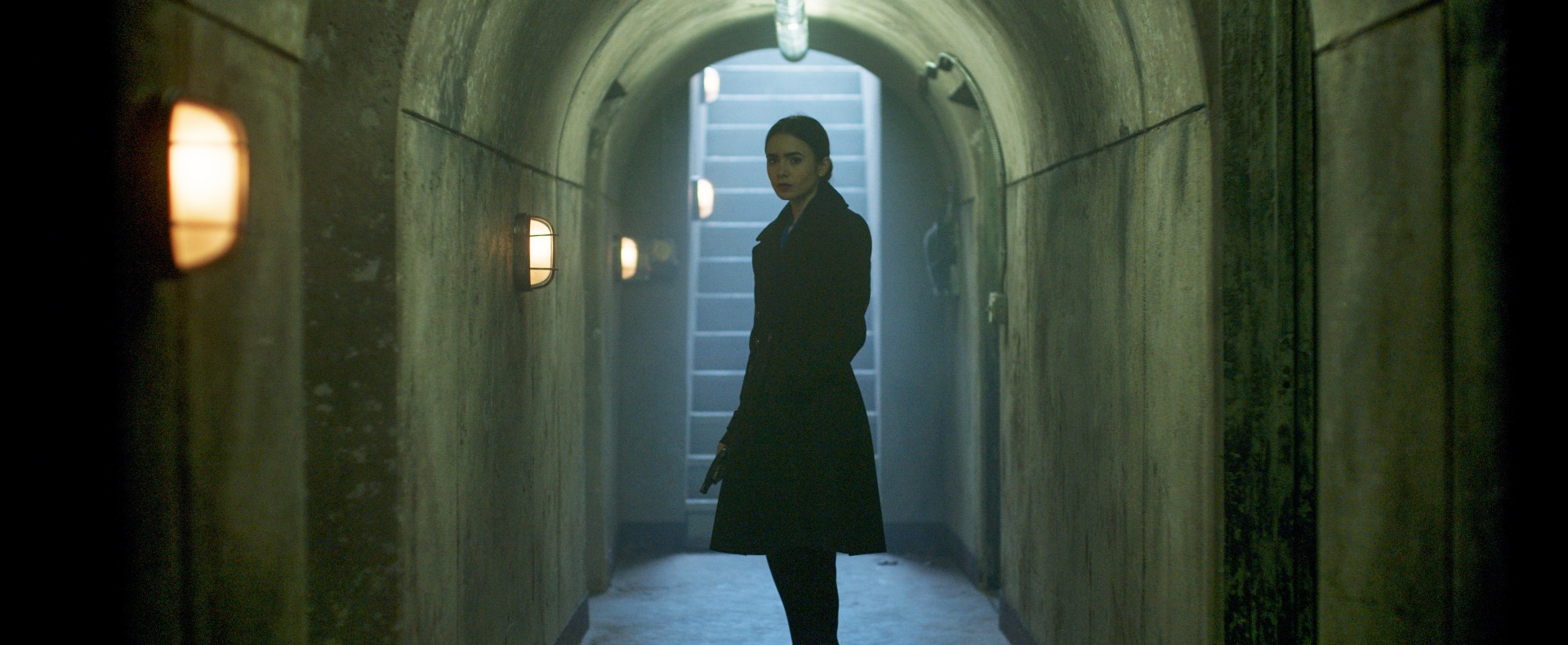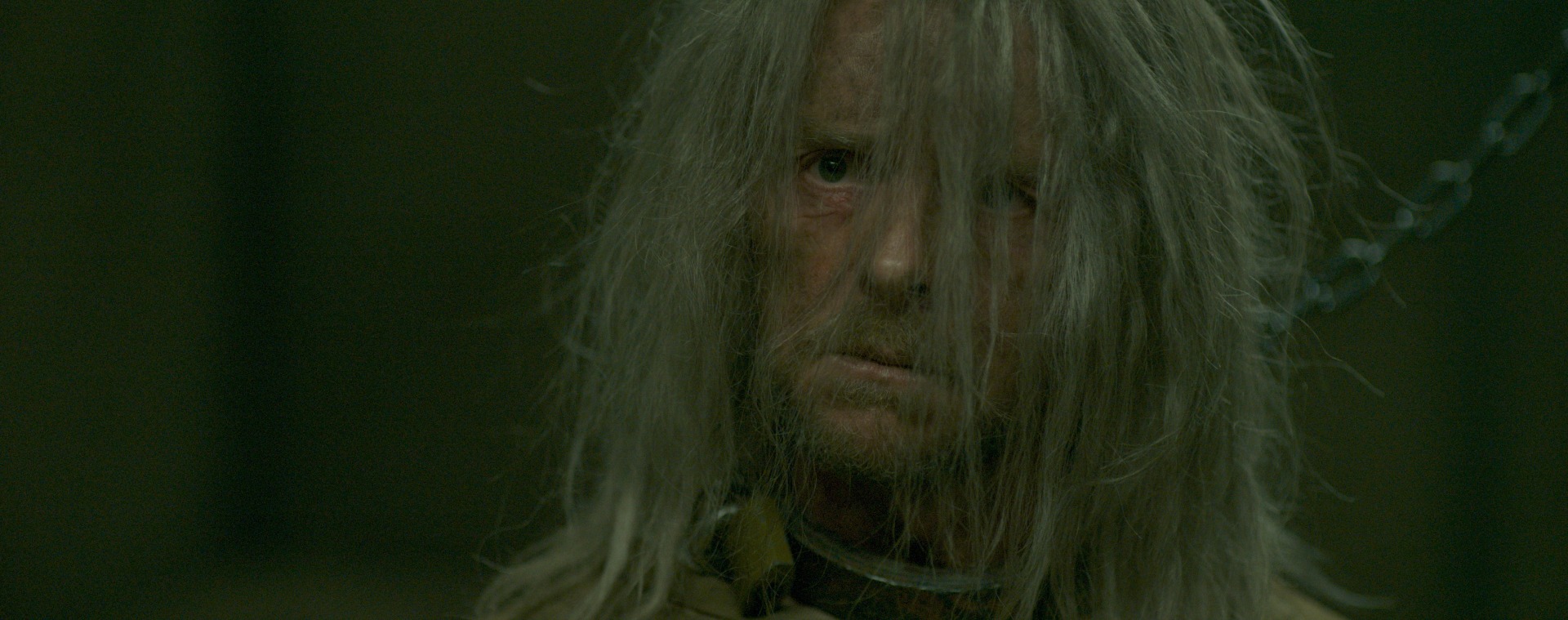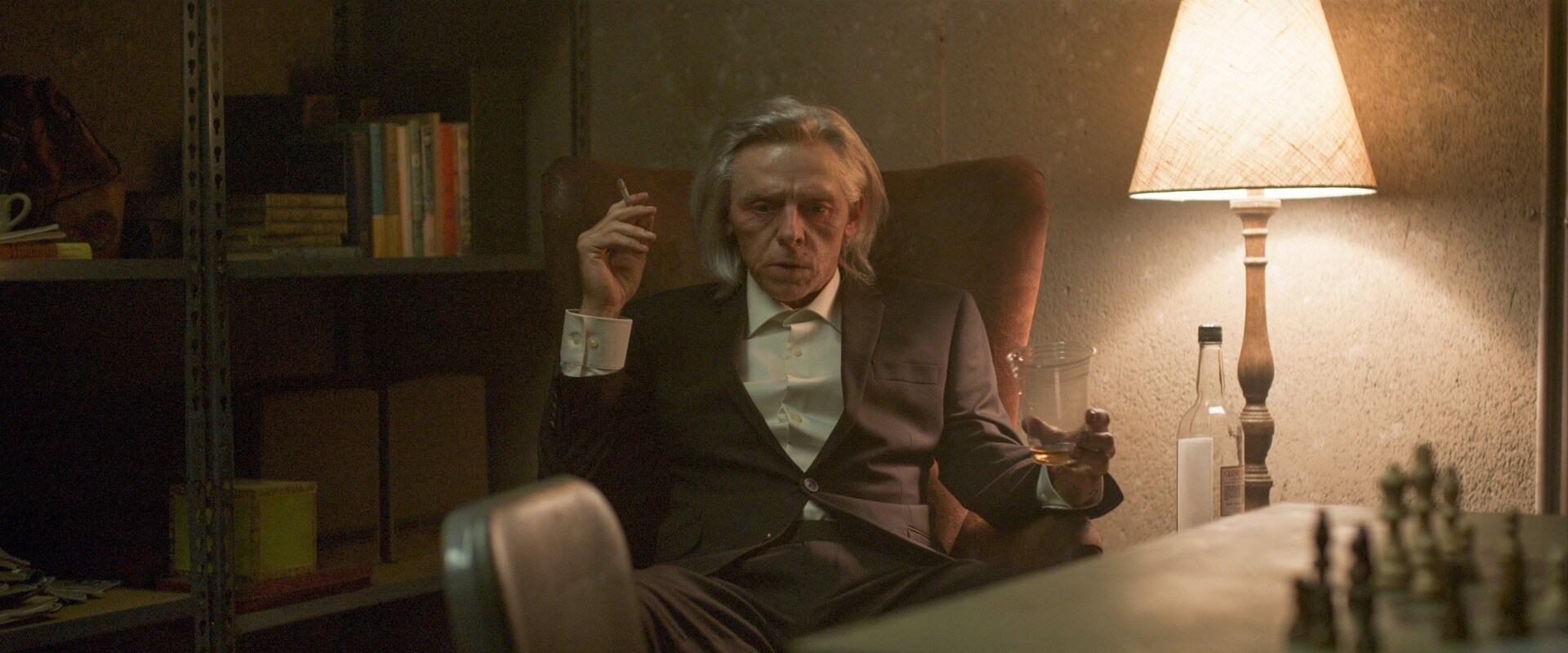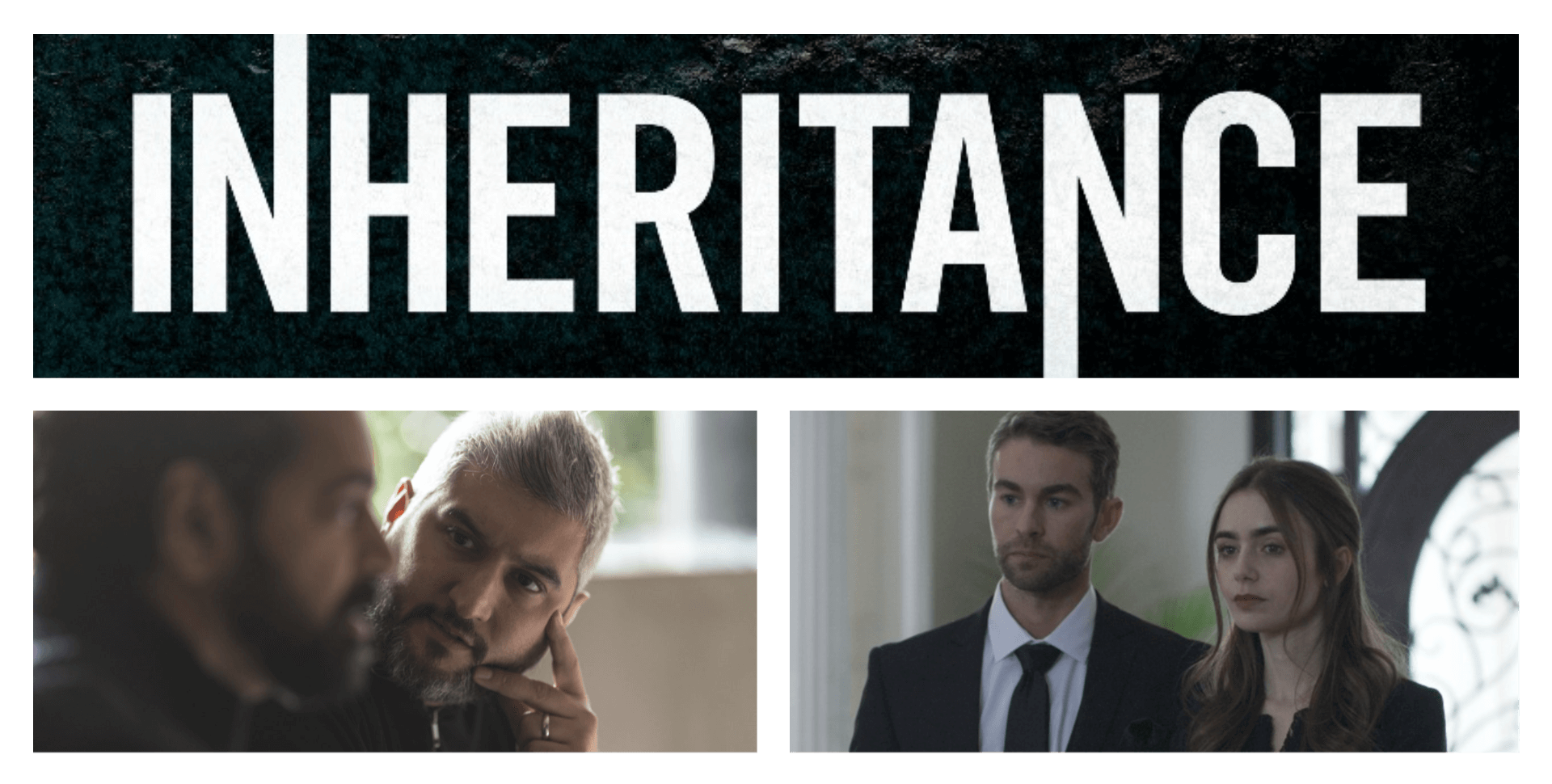Directed by Vaughn Stein and written by Matthew Kennedy, Inheritance follows Lauren (Lily Collins), a distinguished district attorney, and daughter to a reputable and wealthy family who receives news of her father's death. Lauren gets an extra shock in the form of a secret inheritance, that is meant for her eyes only. She must contend with this new reality and decide the best path forward, with the least amount of damage as possible.
Delightedly, this is our second time talking with Stein — with our previous interview with him focused on his directorial work on Terminal, starring Margot Robbie. This time around, we got the low-down on the various facets of directing Inheritance, from casting during pre-production to the finishing touches in post-production. The drama/mystery/thriller is now available to watch on DirectTV and to buy on Digital and On-Demand.

Photo courtesy of Vertical Entertainment
Inheritance is such an engrossing and suspenseful film, how were you approached to direct the feature?
My agent sent me the script in mid-2018 and I was utterly transfixed by Inheritance from the first time I read it. Matthew Kennedy, the writer, had done an incredible job of creating a high-stakes and complex thriller with this darkly folkloric and satirical edge… and I was hooked. I spoke to Richard Lewis, the producer who put the film together, and we realized we shared the same passions for the script, and we started building from there.
Inheritance is an enthralling combination of psychological thriller and dark fable. There are iconic themes at its heart; the notions of privilege, legacy, what we will do to protect our own, and the sinister secrets that pass down through the generations… the skeletons we all have in our closets, the monsters lurking in our basements. To evoke these huge themes in an emotive and powerful way, I needed an incredible ensemble and I was truly spoiled with the world-class actors I had the privilege of making this film with.
Inheritance delves into some darker subject matters, such as self-preservation at the cost of harming others — which is a task fit for actors with great acting ability, nuance, and subtlety in their performances. Luckily, Lily Collins and Simon Pegg were both perfectly cast in their roles. Can you tell us about the casting process for the film?
I had worked with Simon on Terminal, my first film, and had been blown away by him. He is world-renowned as a comic genius, but he is also one of the most astonishingly versatile and disciplined actors I have had the pleasure of working with. From the first time I read the script, the idea of Simon in the role of Morgan Warner featured strongly in my mind. The physical transformation he underwent for the part was incredible. He worked out relentlessly to create the ‘prison yard’ physique and we dove deep into the character to build this gaunt, twisted ‘skeleton in the closet’ for many months. We also wanted to create a Machiavellian ’Tom Ripley’ feel to Morgan; a chameleonic and mercurial ability to summon different emotions and personality traits at will to better manipulate Lauren… vulnerable, insightful, humorous, vicious… whatever best served his needs in the moment. Creating those rhythms and nuances with Simon was a huge amount of fun.
Lily is just limitlessly talented. She has the incredible balance of both poise and presence alongside astonishing emotional depth and range. She brought out both the fierce intelligence and independence of Lauren in her public life as the Manhattan DA trying a high profile case, as well as the character’s deep-seated emotional vulnerability and recent bereavement in her private world, which crumbles piece by piece throughout the film. We talked a lot about her character’s confident and groomed public image versus her private fragility and upset, and how we could convey that sense of duality to the audience throughout the film. The way she was able to move through these complex narrative and emotional states so vividly was a joy to direct. As the central protagonist, she needed to carry the emotional weight of the film on her shoulders as well as propel us through the story as it unfolds around her, and Lily did a beautiful job.

Photo courtesy of Vertical Entertainment
Which scenes in Inheritance did you find to be the most worthwhile and most challenging, both during production and post-production? What do you think was instrumental in cultivating the dynamic between Collins and Pegg on the set, especially in the emotionally heightened scenes?
The bunker scenes were both challenging and brilliant to direct. They are absolutely central to the movie and we needed to get them spot on. The way Matthew had written them, how their relationship changes and pivots throughout the film were mouthwatering to direct, moving through such a variety of emotions and revelations smoothly and subtly. Simon. Lily and I had the chance to rehearse for a few days before we started shooting and I immediately felt that we had something special. The scenes by their nature were dialogue-driven and claustrophobic two-handers and it was mesmerizing to watch the scenes come alive with Lily and Simon stalking one another, parrying and thrusting, probing for weaknesses. The performances are electrifying. It was magical to set them loose on one another on set… but we were all such good friends that the moment we cut, the dank and claustrophobic set would dissolve into jokes and laughter. We also shot on location in Manhattan towards the end of production, and that was a personal life’s ambition of mine realized, which I will always remember fondly.
How was it working with Cinematographer Michael Merriman to create the visual aesthetic for Inheritance?
From the outset, duality was a key word for us. We wanted to create a sense of opposites throughout the film; above and below, light and dark, claustrophobic bunkers and palatial mansions, the green forests of upstate New York, and concrete canyons of Manhattan. Above ground, we wanted the camera language to reflect the fluidity and fast-moving pace of the narrative so we used dolly and track, cranes and Steadicam prevalently. Whereas, in the confines of the dark bunker, we wanted to sit in the brooding stillness and intensity of the story and the performances, so the camera tended to be more static and convicted, more oppressive and voyeuristic. Merriman is a genius and the way he blended these disparate ideas into such a coherent and unique style is incredible.

Inheritance featured a clever way of condensing and communicating information in a way that enhanced the suspense with the use of cross-cutting/parallel editing in a rapid manner (present in the introduction, when we find about the death of Lauren's father). How did you find the process of working with Editor Kristi Shimek?
I had wanted to create a weird symbiotic relationship between Lauren and Morgan; that Morgan somehow infects Lauren with his presence from the moment she discovers him and that they are then bound together in the film, even when apart. Cutting between them at specific times throughout the film seemed to help us make that land for the audience. I am a big fan of interweaving narrative and cross-cutting as a motif and style. I find it an elegant and emotive tool as a viewer and filmmaker and it allows for information to flow for the audience at pace and create striking visual parallels. Utilizing the technique in the cold opening and cross-cutting between Lauren’s press conference and the sudden death of Archer allowed us to open the movie dramatically and shockingly (hopefully!) and introduce the audience to an editorial style we would be utilizing throughout. The brilliant Kristi Shimek and I also wanted to embrace the ‘dark fable’ nature of the story; to retain the complexities and twists and turns of the plot but to keep the narrative simple and streamlined and the pacing lean and mean. Interweaving the Lauren and Morgan storylines, as well as other key sequences that happen simultaneously, allowed us to create an elegant and simple fluidity to the storytelling, and to create the sense of the central character’s destinies and emotional states mysteriously bleeding into one another throughout the story.
What films/directors have had the biggest impact on your filmmaking and for your feature film, Inheritance, and why?
Once I start prepping a film in earnest, I have to stop myself watching closely related movies as I live in terror of subconsciously ripping off filmmakers I admire greatly!! In the run-up to starting Inheritance, I revisited a lot of iconic classic thrillers; Hitchcock’s Rear Window, Vertigo and Psycho as well as Scorsese’s ‘Cape Fear’ and Demme’s ‘Silence Of The Lambs’ come to mind. I also looked for touch-points in some of the incredible modern thrillers of recent years, the films of David Fincher and Denis Villeneuve in particular. The latter two directors are huge inspirations for me, as well as Tarantino, The Coen Brothers, Cuarón, Scorsese, Nolan… I’m just a greedy film fanboy to be totally honest with you.
What's on the horizon for you?
I’m currently in post-production on a psychological thriller with Casey Affleck, Michelle Monaghan, Sam Claflin, and Veronica Ferris. After that, and when the world rights on its axis, I have a few exciting projects that are bubbling up, and hopefully, I’ll start on one of those later in the year. In the meantime, I will be sitting on the couch in my pants endlessly rewatching ‘Friends’ and ‘Peep Show', which are my current lockdown happy places.

